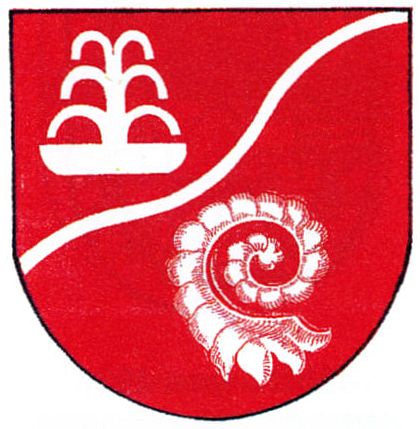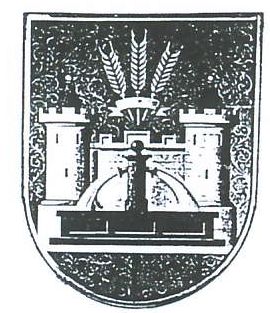Langensalza: Difference between revisions
Knorrepoes (talk | contribs) No edit summary |
Knorrepoes (talk | contribs) |
||
| Line 16: | Line 16: | ||
The previous arms were adopted on December 7, 1948: | The previous arms were adopted on December 7, 1948: | ||
[[File: | [[File:langensalza1.kreis.jpg|center|Wappen von {{PAGENAME}}]] | ||
The two towers symbolise the cities of Bad Langensalza and Bad Tennstedt. The fountain refers to the sulphurous springs in both cities, the wheatears symbolise agriculture. | The two towers symbolise the cities of Bad Langensalza and Bad Tennstedt. The fountain refers to the sulphurous springs in both cities, the wheatears symbolise agriculture. | ||
Revision as of 15:30, 5 March 2020
This page is part of the German heraldry portal Deutsche Wappensammlung |
Heraldry of the World |
|
German heraldry:
|
Selected collector's items from Germany:
|
LANGENSALZA (LSZ)
State : Thüringen
Incorporated into: 1994 Unstrut-Hainich Kreis
Official blazon
- (de)
Origin/meaning
The arms were officially granted on March 23, 1992.
The upper part shows a fountain for the sulphur springs in the district. The wavy bend symbolises the Unstrut river. The ram's horn in the base is taken from the arms of the Lords of Salza, known since 1261.
The previous arms were adopted on December 7, 1948:
The two towers symbolise the cities of Bad Langensalza and Bad Tennstedt. The fountain refers to the sulphurous springs in both cities, the wheatears symbolise agriculture.
Contact and Support
Partners:
Your logo here ?
Contact us
© since 1995, Heraldry of the World, Ralf Hartemink 
Index of the site
Literature : Ulle, 1993.













